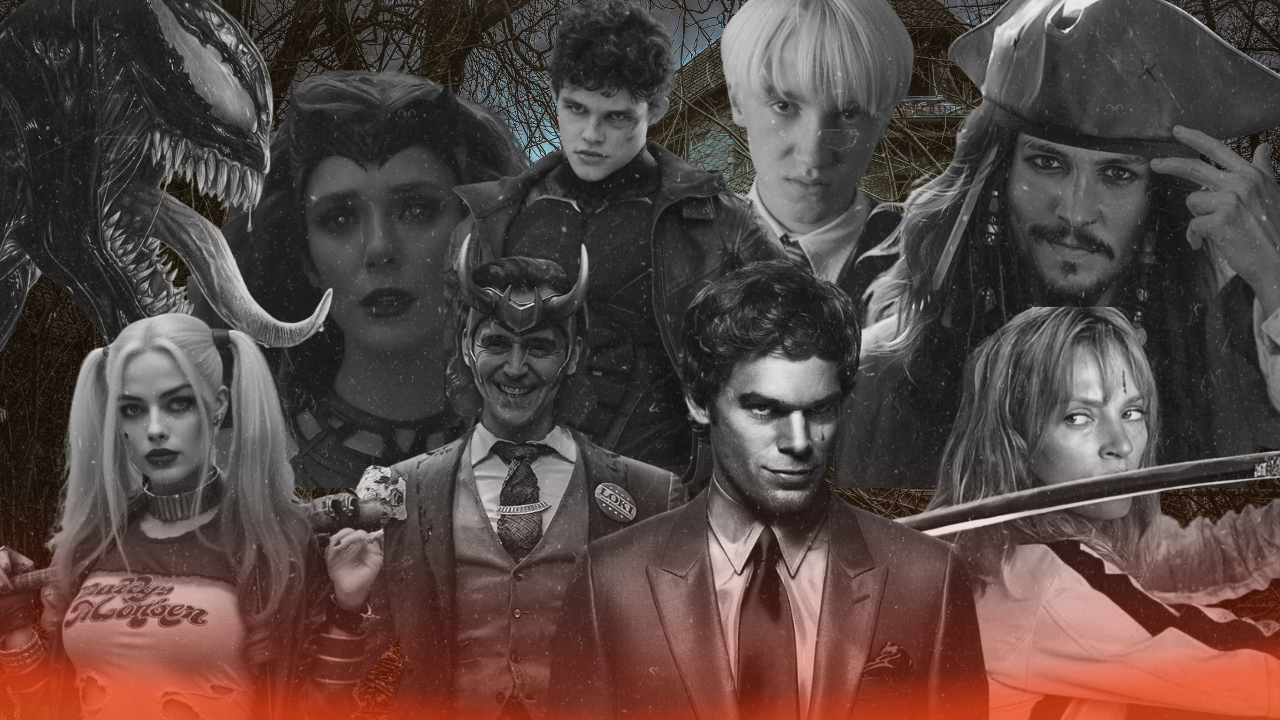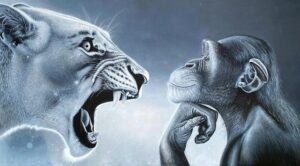PC: J V Keerthi
There is something undeniably magnetic about a show based on chaos, something that just draws the viewers in. Where the protagonists aren’t just heroes and the lines between right and wrong become blurry. Where fiction often mirrors the uncomfortable truths of life. We no longer long for a perfectly happy ending or heroes with a strong moral compass, but why? Why are we drawn to chaos, to broken characters, and to imperfect endings?
The rise of morally grey characters and chaotic narratives isn’t a fad in my opinion, it’s an honest mirror that reflects how we truly feel.
Of course, while chaotic narratives may resonate deeply with us, not everyone finds solace in them. Some may argue that these stories, rooted in moral ambiguity and emotional unrest, often withhold the hope or escapism that traditional heroic plotlines offer. For those seeking reassurance, clarity, or a vision of a better world, the grey areas can feel more exhausting than comforting.
Stories today are full of characters like Joel from The Last of Us, Jinx from Arcane, and Daenerys Targaryen from Game of Thrones: figures whose intentions may be noble, but whose methods are anything but. They don’t represent perfection. Instead they represent conflict, desperation and the hard choices that make us human.
Morally grey characters challenge the notion of good versus evil. Instead of asking us, “What’s right?”, they ask, “What would you have done?” It’s a shift in storytelling that reflects a wider cultural reality, one where clear answers feel increasingly rare.
Joel, from The Last of Us, is hailed as both a savior and a monster. In saving Ellie, he dooms humanity. But his decision doesn’t stem from villainy, but love. The complexity and moral discomfort, mirrors the impossible choices we face in our own lives, where ethics are often tangled with emotion. This show also demonstrates how apocalyptic narratives have shifted, instead of just being about zombies, it also highlights details like the slow disintegration of relationships, the numbing spiral of depression, and the loss of identity. The Last of Us gives us both, global collapse paired with deeply personal grief.
Characters like Catwoman from the DC Universe or Lady Eboshi from Princess Mononoke push the same boundaries. They act out of conviction, loyalty, survival but their actions cause harm. We admire them, even as we question them. And in doing so, we confront our own hypocrisies and internal battles.
But perhaps no show sits in the storm quite like BoJack Horseman, a show that I’ve started watching during the semester break.
At first glance, it seems like a typical edgy cartoon or a washed-up celebrity comedy set in a warped version of Hollywood where humans and anthropomorphic animals co-exist. Instead, it dives headfirst into the very things most shows dance around: addiction, depression, childhood trauma, self-sabotage, and the messy journey of accountability.
BoJack is by no means a likable character. He lies, disappoints and spirals. He also hurts people, often the ones who care about him the most. Just when we think he’s getting better, he self-sabotages and falls back onto the same destructive patterns. But the most uncomfortable part is that some of us still care. The show never lets us dismiss him so easily. Instead, it forces us to sit with the discomfort of his story: his childhood trauma, his constant need for validation, and his cyclical guilt. He isn’t a redemption arc wrapped in a bow. He’s a slow-burning collapse and a walking contradiction. And most of all, he’s a mirror.
BoJack’s chaos isn’t cinematic, it builds in silence and slips through the cracks of every missed opportunity to do better. The show never excuses him (and neither do the viewers) but it never completely abandons him either. And maybe that’s the oddly comforting part, watching someone who might never truly be forgiven, but he still keeps trying anyways.
Antiheroes like BoJack, Walter White, or even Katniss Everdeen in her later stages, they’re not interested in saving the world. They’re too busy trying to survive it. Their stories don’t give us answers most of the time. They give us questions. And in a world full of uncertainty, sometimes that feels more honest than anything else.
They appeal to us because of their flaws. They often make mistakes, driven by their selfish desires or their upbringing. In addition, they embody contradictions: strength and vulnerability, selfishness and sacrifice, cruelty and compassion. And that complexity is exactly what makes them feel more real. They do not follow conventional moral codes, by which these stories actually remind us that morality isn’t always a fixed compass. Morality shifts, bends, and sometimes breaks under pressure. And in those fractures, we find stories which feel more realistically human. These stories resonate with us, not because they show us how to be good, but because they show us how hard it sometimes is.
Another show I quite like is Fleabag. If BoJack is chaos seen through guilt and self-destruction, Fleabag is its quieter, sharper twin masked in humour. Phoebe Waller-Bridge’s Fleabag is a woman navigating grief, guilt, desire, and disconnection, all while maintaining the perfect deadpan and direct eye contact with the viewer. She breaks the fourth wall constantly, pulling us into her interior world.
Fleabag is far from blameless. She lies and manipulates. She seeks out fleeting, unhealthy relationships to feel less alone. And, like BoJack, her self-sabotage comes from a deep well of pain. She carries grief over the death of her best friend, unresolved family dynamics, and a desperate need to be loved. What makes Fleabag so powerful is its honesty. It doesn’t glamorize the chaos but lays it bare. Her interactions with the “Hot Priest” in Season 2 become the perfect microcosm of this: a relationship built on yearning and moral compromise, where their bond becomes both salvation and self-destruction for her. Her journey isn’t about becoming perfect. Her healing doesn’t come from finding love or being forgiven, it comes from letting go of the performance. In the final episode, when she silently walks away from the camera, choosing not to include us anymore, it feels like a quiet triumph. Not because she’s “fixed” per se, but because she’s finally ready to stop hiding behind the joke.
We don’t crave chaos because we enjoy destruction. We crave it because it makes us feel less alone in ours. Because it tells us we’re not the only ones trying to make sense of things that don’t always make sense. And in a time where everything feels precarious, fiction that reflects the mess is strangely comforting. Not because it’s hopeful in the traditional sense, but maybe because it reminds us that even in chaos, there can be connection, catharsis, and just a possibility of redemption.




